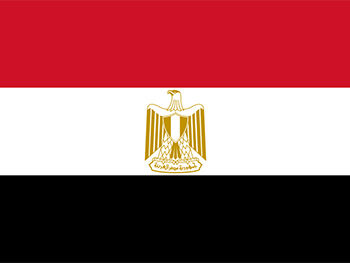Expert comment Last updated 13 December 2017

School of Social Sciences academic Lily Hamourtziadou addresses the recent violence in Egypt, in her own words.
The Promised Springs
Mosque attack, North Sinai, Friday, November 24, 2017
‘Egypt has been fighting a vicious Isis insurgency in Sinai for the last three years. Friday’s attack comes after a spate of recent bombings targeting the police and army' - The Independent
‘The attack marks a major escalation in Cairo’s battle with regional insurgents….No group claimed responsibility for the assault, but it was the deadliest yet in a region where for the past three years Egyptian security forces have battled an Islamic State insurgency that has killed hundreds of police and soldiers’ - The Guardian
‘Egyptian officials investigating the massacre of worshippers at a mosque in Sinai say the attackers were carrying the flag of the Islamic State group. At least 305 people died in the assault, which was launched during Friday prayers and has not yet been claimed by any group. Egypt's public prosecutor said there were up to 30 attackers at the scene. President Abdul Fattah al-Sisi has vowed to respond with "the utmost force". The Egyptian military says it has already conducted air strikes on "terrorist" targets' - BBC
Where is the narrative of democratic peace the West was promising Egypt, Libya, Iraq, Syria, and Tunisia during the Arab Spring uprisings? Where are the strong states? Where is the transformation? Egypt’s internal struggle for power between the revolutionary youth (in coalition with secularists), the Islamists and the military continues. Other states have been weakened, especially identity-fragmented ones, as regional power struggles have intensified. Hard-liners have been empowered, while moderates have been marginalised.
“The core of security, the protection from harm, assumes a field of relationships, including a threatener, the threatened, the protector or means of protection, and the protected” (Fierke, Critical Approaches to International Security, 2007: 46). In today’s Middle East the blurring of the lines between war and peace, tyranny and democracy, freedom and oppression has resulted in confusion as to who is threatened, who is the threat, who is the protector and what the means of protection are. The relationships between protector and protected, threatener and threatened, are in disorder.
“The advance of freedom leads to peace,” said George W. Bush. A liberated Iraq, Egypt, Libya would, presumably, become peaceful. No internal threats and itself no threat to other states. "We have the chance to show that America values the dignity of the street vendor in Tunisia more than the raw power of the dictator … America must use all our influence to encourage reform in the region … we need to speak honestly about the principles that we believe in, with friend and foe alike", stated Barack Obama, in a major speech on May 19, 2011.
Yet Iraq, Syria, Egypt and Libya are now fragmented states, where each party struggles to gain power, at the expense of the others, as they have incompatible security requirements, which means that the security of each cannot be assured at the same time as the security of its rivals or enemies. Thus they seek relative gains, where their own gain is a loss to another, rather than absolute gains, which require cooperation. In such weak and fragmented states, all sides see the struggle for power and its acquisition as a means to their survival.
The violent deaths of hundreds of thousands of people in Iraq and Syria, following Western intervention, exploitation and ‘responsibility to protect’, and the terror and insurgency engendered, are the legacy of Springs and Awakenings that were never realised.
The views expressed in this article are those of the author, and do not necessarily reflect the views of Birmingham City University and its stakeholders.